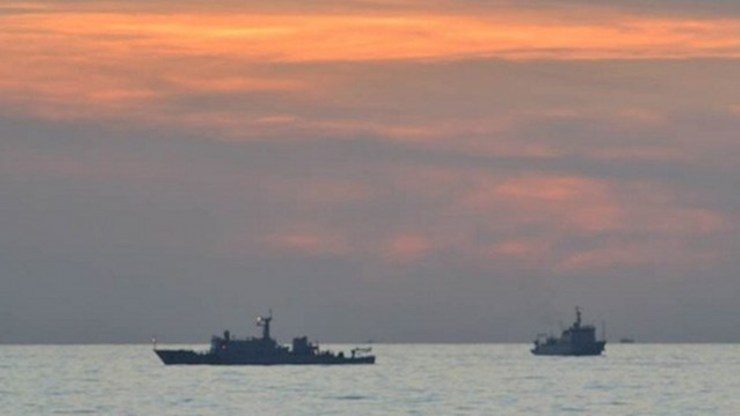SUMMARY
This is AI generated summarization, which may have errors. For context, always refer to the full article.

MANILA, Philippines – Filipino seamen face the threat of losing their jobs or suffering a “huge limitation” on their mobility if China asserts more control over the disputed South China Sea, a maritime law expert said.
A Philippine foreign affairs official agreed that this scenario, while hypothetical, is possible.
Jay Batongbacal, who heads the University of the Philippines Institute for Maritime Affairs and Law of the Sea, detailed these “practical implications” of losing freedom of navigation in the South China Sea.
In an open forum on Friday, September 26, he said seamen will lose this freedom if China insists on its 9-dash line, a demarcation to claim virtually the entire South China Sea. The Philippines is challenging this 9-dash line in a historic case against China before the Permanent Court of Arbitration.
Batongbacal said: “If we allow the 9-dash line to exist, and China decides that they will not allow Filipino seafarers to cross the South China Sea, you’re out of jobs, because nobody can cross anywhere; you cannot cross the South China Sea.”
“If China decides that every seaman that crosses the South China Sea should have IDs and should report to the Chinese embassy in each entrance and exit of the South China Sea, you will have to do it, and that’s a huge restriction, that’s a huge limitation on your mobility,” he added.
“If they decide that the only way to pass through the South China Sea is through some kind of circuitous route, which expends more fuel and creates more costs, that will then impact on the shipping industry, and there will be nothing we can do about it,” the professor also said.
Before the open forum, Batongbacal delivered the keynote speech in the event titled, “Scarborough Shoal: Truths and Lies,” at the De La Salle University in Manila. The event took place in line with the exhibit of ancient maps that seek to disprove China’s claims in the South China Sea. (READ: Top Philippine judge uses Chinese maps vs China)
Biggest supplier of seamen
Batongbacal explained that freedom of navigation in the South China Sea means “you can then cross it…without any kind of restrictions, without any kind of limitations, as long as you are on a vessel.”
He said: “The fact that you are able to board ships for a foreign flag, go anywhere in the world, and with just your seaman’s book, and you’re entitled to all these privileges, and you’re entitled to many immunities, which are not available for an ordinary traveler, is because of the freedom of navigation.”
The problem is when China treats the South China Sea “as if it’s land territory,” and “you cannot enter or exit it or do anything in it without China’s permission, and you will always have to follow China’s laws, rules, and regulations to the letter.”
“Definitely, under those conditions, the maritime industry in the Philippines, most of which has to pass through the South China Sea because of the location, definitely will be very, very seriously affected,” he said.
Philippine Department of Foreign Affairs Assistant Secretary Luis Cruz, a reactor at Friday’s forum, agreed with Batongbacal on these “hypothetical situations.”
“If China says they are reserving their right to interdict vessels that don’t seek permission from them, of course they will apprehend seamen, international carriers. Those naval vessels will be placed in a delicate situation,” Cruz said in a mix of English and Filipino.
Up to 375,000 of the world’s seamen come from the Philippines, the Trade Union Congress of the Philippines estimated.
The International Labor Organization said in 2012 that the Philippines supplies the biggest number of seafarers around the world. The ILO estimated that across the globe, one out of 5 seafarers is Filipino.
Fears for the seamen come in the face of another concern in the South China Sea: the possibility that China will declare an air defense identification zone (ADIZ) over the disputed waters. The Philippines earlier denounced China’s ADIZ because it “transforms the entire airzone into its domestic airspace.” – Rappler.com
Add a comment
How does this make you feel?
There are no comments yet. Add your comment to start the conversation.